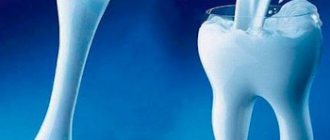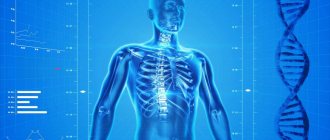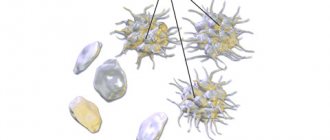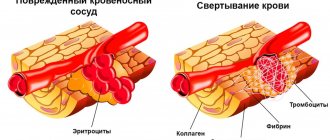Complexes with this research
Stress complex Assessment of the body's condition during stress RUR 4,310 Composition
Preventive check-up Universal annual preventive screening RUR 11,960 Composition
Monitoring the diet of a nursing mother Assessing metabolic disorders and the risk of iron and calcium deficiency RUR 2,940 Composition
IN OTHER COMPLEXES
- Advanced male anti-aging diagnostics RUB 33,710
- Women's anti-aging diagnostics RUB 12,070
- Check-up No. 1 for children and teenagers 10,950 RUR
- Vegetarians and vegans RUB 5,820
- Minerals for health 850 R
How to take a blood calcium test?
How to determine the content of macronutrients in the blood? To measure calcium levels, a biochemical blood test is performed. To complete the picture, the content of ionized and total Ca is examined.
Indications for analysis:
- Preparation for surgery or the period after surgery.
- Restoration of the body after injuries, burns.
- Carrying out hemodialysis.
- Diagnosis of malignant tumors.
- Pregnancy.
- Ulcer of the stomach and duodenum.
- Muscle weakness, cramps.
- Signs of osteoporosis.
- Heart rhythm disturbances.
- Poor dental condition.
- Bone pain.
- Suspicion of kidney stones.
- Hyperthyroidism.
- Increased urine volume.
- Problems with the thyroid gland.
- Reduced blood clotting.
- Signs of hyper- or hypocalcemia.
Preparing for the study
Blood is drawn from a vein in the morning. You should stop taking medications containing calcium a few days in advance so as not to distort the results. If the patient has undergone procedures such as rectroscopy, x-rays, fluorography, then the analysis should be postponed for a week, since these studies change the biochemical composition of the blood.
Before testing you must:
- Do not consume food or drinks 10 hours before.
- Do not smoke or drink alcohol the day before the test.
- Avoid physical and emotional stress 2-3 days before blood sampling.
Article on the topic:
Can I drink water before taking a blood test?
The following substances affect the analysis results:
- Vitamins A and D.
- Diuretics.
- Lithium.
- Androgen hormones.
The following medications reduce calcium levels:
- Penicillins.
- Tetracyclines.
- Insulin.
- Anti-tuberculosis drugs (isoniazid).
- Glucose.
- Antidiabetic agents (Glucagon).
- Anticonvulsants (Carbamazepine).
- The hormone estrogen.
If the patient uses the above medications, he should inform the doctor about this.
Detailed description of the study
Calcium (Ca2+) is a mineral, 99% of which is found in bone tissue, while approximately 1% is found in other organs and systems. Whey calcium is found mainly in combination with protein molecules (approximately 40%), up to 50% is found in the form of ionized calcium and 10% in the form of inorganic complexes.
Calcium ions influence many biochemical processes in the human body. This macronutrient plays a major role in the process of bone mineralization. It helps maintain bone structure and ensures their growth. In addition, calcium plays a significant role in regulating the permeability of cell membranes and impulse transmission in nerve and muscle tissue. The presence of calcium ions is also extremely important for complete blood clotting. This macroelement is involved in digestive processes.
Food is the main source of calcium. A lot of it is found in dairy products, soy, fish, beans, cabbage, almonds and pumpkin seeds. Absorption of this mineral occurs primarily in the small intestine, facilitated by vitamin D, and its release in the kidneys. Some calcium from the kidneys returns to the blood, a process called reabsorption.
Maintaining optimal calcium levels in the body is regulated by a complex system of interaction between many organs. For this purpose, they have special receptors that are sensitive to deviations in the Ca2+ content from the norm.
The parathyroid glands play an important role in Ca2+ metabolism. They secrete parathyroid hormone, which enhances the absorption of this macronutrient in the intestine. When there is excess calcium, thyroid cells secrete calcitonin, which slows down the reabsorption of Ca2+ in the kidneys. Normally, the dynamic balance of these processes allows you to maintain calcium levels at the desired level.
A decrease in the concentration of calcium in the blood, or hypocalcemia, occurs due to a malfunction of the parathyroid glands, a deficiency of vitamin D in the body, or intestinal diseases that occur with impaired absorption of the mineral. Chronic renal failure is also often associated with hypocalcemia due to impaired synthesis of vitamin D. Characteristic symptoms of hypocalcemia are involuntary muscle contractions, numbness and tingling sensations in the muscles, and abnormal heart contractions.
An increase in serum calcium concentration, or hypercalcemia, is caused by its excessive release from bones, less often by accelerated absorption in the intestine. The cause of hypercalcemia can also be hypervitaminosis D due to uncontrolled use of drugs containing this vitamin.
Most causes are associated with hyperparathyroidism or bone metastases from breast, prostate, and lung cancer. Clinical signs of hypercalcemia include indigestion, constipation, arrhythmia, and muscle weakness. The risk of developing kidney stones increases.
Studying the content of total calcium in the blood helps to identify disturbances in its metabolism and take the necessary measures to normalize this indicator.
The benefits and harms of calcium for women
The benefits of calcium are difficult to dispute. It is as follows:
- Preventing osteoporosis. This is especially important for women after menopause, when estrogen production decreases and bones become brittle.
- Reducing PMS symptoms. Doctors have proven the connection between calcium deficiency and the negative manifestations of premenstrual syndrome.
- Prevention of preeclampsia in pregnant women. Calcium deficiency contributes to high blood pressure and impaired kidney function. This leads to premature birth and stillbirth.
- Reducing the risk of cardiovascular disease. Ca helps the heart muscle contract normally.
- Normalization of weight. Calcium regulates the production of parathyroid hormone, which promotes lipid synthesis. That is, Ca normalizes metabolism.
Negative effects of the nutrient:
- Calcium interferes with the absorption of iron and zinc.
- Excessive consumption of the element, especially from dietary supplements, provokes constipation.
- Excess calcium increases the risk of urolithiasis and prostate cancer.
Interference:
- Venous stasis with a tourniquet applied for a long time. Long-term storage of blood sample. Alkaline antacids, androgens, calusterone, danazol, diethylstilbestrol (rapid increase within 24 hours in breast cancer patients), dihydrotachysterol. Permanent use
- Albuterol, alprostadil, aminoglycosides (eg, gentamicin), asparaginase, barbiturates in the elderly, calcitonin, carbamazepine, carbenoxolone, carboplatin, corticosteroids, diuretics (trigger effect), including acetazolamide, ethacrynic acid, furosemide, estrogens (after menopause), gastrin, glucagon, glucose, indapamide, insulin, isoniazid, laxatives (in case of excessive use), magnesium salts, methicillin, phenytoin, phosphates, plicamycin, isotonic sodium chloride solution (for hypercalcemia), tetracycline (in pregnant women), fluorides, oxalates, sulfates.
How to normalize calcium in the blood?
You can normalize the level of macronutrients with the help of nutrition and medications. The choice of remedy depends on the identified cause of the violation.
Diet to increase calcium
To increase the Ca content you need to consume:
- Dairy products.
- Lean meat.
- Vegetable oil.
- Chicken eggs.
Article on the topic:
Which foods contain the most calcium and why is it needed?
Lactose helps the absorption of Ca, so patients with lactase deficiency have a deficiency of this element. Some foods remove calcium from the body or interfere with its absorption. Palm oil is especially dangerous. In the intestine, palmitic acid binds Ca, forming insoluble compounds. These compounds are excreted from the intestines along with feces.
In case of hypocalcemia, you should avoid:
- Sweet carbonated drinks.
- Sausage products.
- Smoked meat, fish.
- Oatmeal.
- Confectionery products.
- Fried foods.
- Black coffee.
The consumption of salt and sugar and alcohol is also minimized.
Interpretation of results
Normally, the macroelement concentration should be in the range of 2.25 - 2.75 mmol/l.
When interpreting the results, the age of the patient must be taken into account. If the indicators are within normal limits, it is highly likely that there are no calcium metabolism disorders.
An increase in total calcium is most often caused by malignant or benign neoplasms of the parathyroid glands or cancer of another location. Also, an excess of a macronutrient may have other reasons (for example, dehydration, tuberculosis, hyperthyroidism, Addison's disease). Macronutrient deficiency is most often caused by a decrease in the amount of proteins. Only a doctor can correctly interpret the test results. Often, to establish an accurate diagnosis, a complex of laboratory tests and instrumental studies is prescribed.
Abnormal calcium
Severe calcium deficiency causes hypocalcemia . This diagnosis is made if calcium is significantly reduced (less than 2.1 mmol/l). Hypocalcemia can be primary (hereditary) and secondary (provoked by external factors).
Low calcium levels indicate the following pathologies:
- Chronic liver and kidney failure.
- Vitamin D deficiency.
- Lack of albumin (protein) in liver cirrhosis, nephrotic syndrome.
- Use of cytostatics (drugs that inhibit cell growth).
- Hypoparathyroidism (decreased function of the parathyroid gland).
- Acute pancreatitis, pancreatic necrosis.
- Long-term adherence to a diet that involves avoiding dairy products.
Hypocalcemia is expressed by the following symptoms:
- Weakness, drowsiness.
- Heart rhythm disturbances.
- Deterioration of the condition of teeth, nails, hair, skin, seizures in the corners of the lips.
- Dry mouth.
- Frequent urination.
- Deterioration of mood, depression.
- Muscle cramps.
- Numbness of fingers.
- Reduced blood clotting.
- Frequent colds.
- Increased sensitivity to low temperatures.
In young children, hypocalcemia develops due to a lack of vitamin D. This leads to rickets. Such a child is developmentally delayed, his legs are bent, and his teeth erupt late.
Elevated calcium levels (hypercalcemia) indicate conditions such as:
- Carcinoma.
- Malignant blood diseases.
- Adrenal insufficiency.
- Undergoing radiation therapy.
- Vitamin D overdose.
- Taking large doses of calcium-containing drugs.
Symptoms of excess calcium in the body:
- Constipation.
- Nausea, vomiting.
- Increased heart rate.
- Darkening in the eyes.
- Poor appetite.
Calcium is not a highly toxic substance; its overdose cannot lead to death (not a single fatal case has been recorded in medical practice). However, the danger of hypercalcemia is that it leads to serious diseases:
- Urolithiasis disease.
- Calcification of blood vessels, heart valves.
- Cataract.
- Hypertension.
- Gout.
Also, with hypercalcemia, the thickness of the blood increases, the acidity of the gastric juice increases, muscle tone decreases, nervous excitability decreases, and magnesium, iron, and zinc are intensively excreted.








